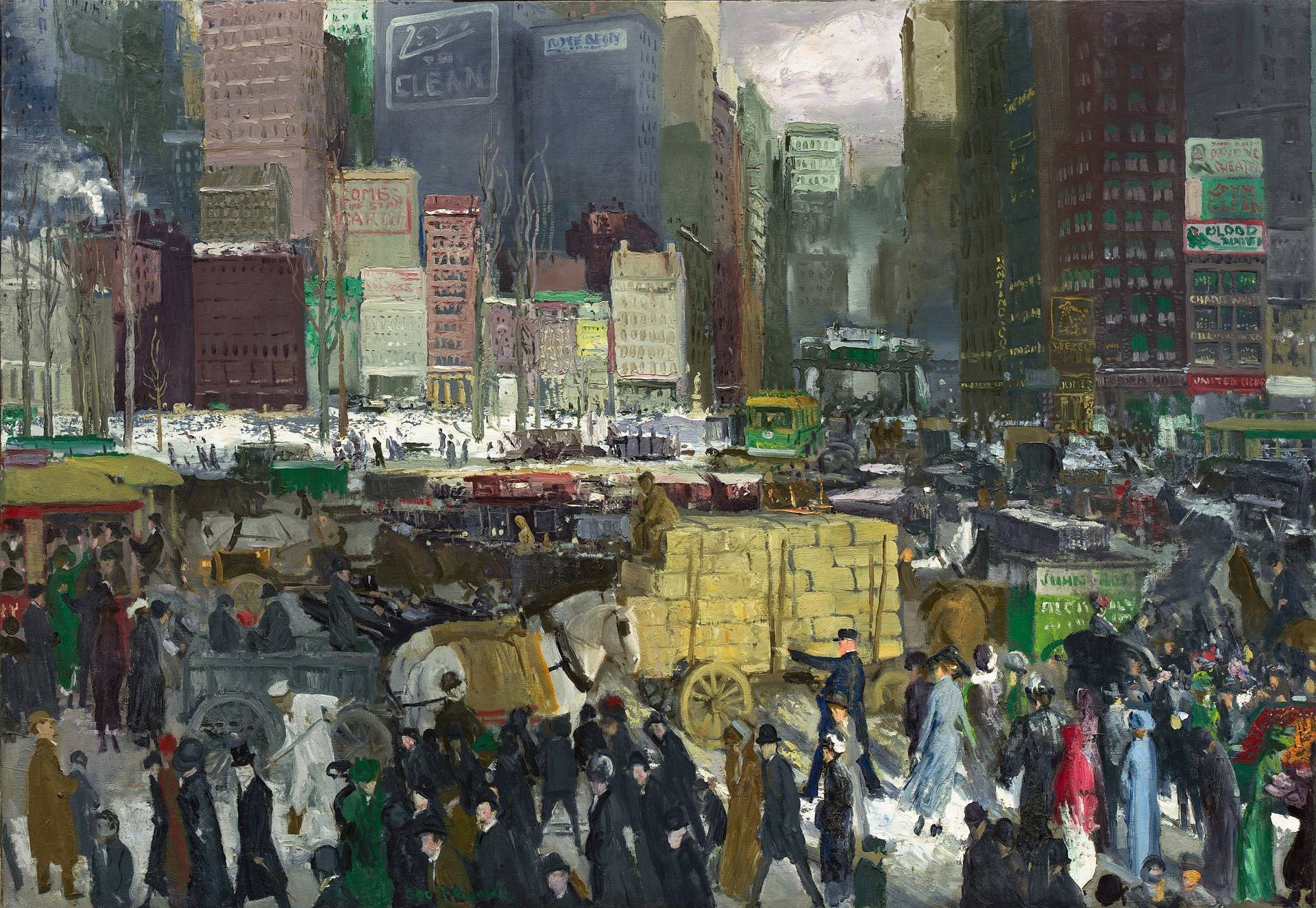
John Rawls: How a ‘Veil of Ignorance’ Can Help Us Build a Just Society
The way we organize society, argues 20th-century political philosopher John Rawls, is best considered under a ‘veil of ignorance’.

What does a just society look like? How can we best organize ourselves to ensure no one is treated unfairly? How should we distribute power, wealth, and freedom?
These are difficult, complicated questions — and our answers to them are invariably shaped by our own life experiences, beliefs, and values.
Indeed, when we discuss what’s best for society, we are often at some level discussing what’s best for ourselves and our loved ones — or, at the very least, we are guided by our own conceptions of what ‘goodness’ means.
Is there a way, then, to see beyond our own biases, interests, and beliefs? What can we do to establish a disinterested account of justice?
The veil of ignorance
When dividing up portions of cake, a shrewd way to encourage fairness is to ensure the person slicing is not the person deciding who gets which piece.
In this same spirit, 20th-century political philosopher John Rawls thought the best way to define a just society is to introduce a so-called ‘veil of ignorance’.
Rawls asks us to imagine the laws we’d all agree upon if we had no idea who we’d be or where we’d end up in society: we could be born into any family, in any situation, raised by the ideals of any belief system.
Starting from this ‘original position’ of ignorance about our personal characteristics and social circumstances, Rawls thinks most people would see it as rational and reasonable to agree to a certain level of universal welfare, education, opportunity, and the protection of basic rights and liberties.
After all, you could end up being anyone — rich or poor, healthy or sick.
You’re thus unlikely to propose a model where some people receive huge inheritances, and others are born into abject poverty; where some are subject to discrimination due to their race, creed, sexuality, or gender; where those with certain health conditions don’t get the support they need.
In one concise email each Sunday, I break down a famous idea from philosophy. You get the distillation straight to your inbox:
💭 One short philosophical email each Sunday. Unsubscribe any time.
In fact, Rawls thinks people operating under the veil of ignorance — if we assume they are motivated by rational self-interest — would eventually agree and build on two general principles of justice:
- Assigning Equality: everyone is guaranteed basic liberties including freedom of thought, speech, expression, association, a right to hold property, and so on.
- Handling Inequality: if everyone receives fair access to education, the opportunity to fully develop their capacities, and the chance to genuinely compete for positions of office, responsibility, trade, etc., then inequalities in wealth and power are permissible so long as they benefit the least advantaged members of society. For example, if someone shows particular talent for leadership, then they can enjoy the social and economic rewards that come with it, as long as this arrangement is structured in such a way that it is of maximal benefit to those lower in the hierarchy (i.e. it does not become harmful or exploitative, but improves the conditions of all, making everyone better off than they would be in any alternative system).
Of course, Rawls is not suggesting we literally implement a veil of ignorance and start society from scratch.
Rather, he proposes the veil of ignorance as a hypothetical thought experiment — something to bear in mind when seeking to establish the fundamental, disinterested principles of justice by which society should be governed.
In his 1971 work A Theory of Justice, Rawls uses it as the starting point, the original position, from which he builds his case that societal justice essentially means fairness.
As he comments:
A just society is a society that if you knew everything about it, you’d be willing to enter it in a random place.
What do you make of this analysis?
- Do you agree with Rawls’ conception of justice here?
- Is the ‘veil of ignorance’ a useful thought experiment, or is it useless to pontificate about a situation so removed from our own?
- What kind of system would you propose if you had no idea where you’d end up in society?
Learn more about political philosophy
If you’re interested in learning more about the principles required for building a just society, you might like my reading list of political philosophy’s best books.
You might also enjoy the following related reads:
- Isaiah Berlin On Why the Pursuit of the Ideal is Dangerous
- Hannah Arendt On Standing Up to the Banality of Evil
- Hannah Arendt: 5 Insights into Totalitarianism
- Thucydides’s Melian Dialogue: Can International Politics Be Fair?
- Byung-Chul Han’s Burnout Society: Our Only Imperative is to Achieve
- Elizabeth Anderson on the Tyranny of Being Employed
- Catherine of Siena on How Wealth Corrupts Justice
Finally, if you enjoyed this article, you might like my free Sunday breakdown. I distill one piece of wisdom from philosophy each week; you get the summary delivered straight to your email inbox, and are invited to share your view. Consider joining 20,000+ subscribers and signing up below:

From the Buddha to Nietzsche: join 20,000+ subscribers enjoying my free Sunday Breakdown
In one concise email each Sunday, I break down a famous idea from philosophy. You get the distillation straight to your inbox.
💭 One short philosophical email each Sunday. Unsubscribe any time.
About the Author

Get one mind-opening philosophical idea distilled to your inbox every Sunday (free)

From the Buddha to Nietzsche: join 20,000+ subscribers enjoying a nugget of profundity from the great philosophers every Sunday:
★★★★★ (100+ reviews for Philosophy Break). Unsubscribe any time.

Take Another Break
Each break takes only a few minutes to read, and is crafted to expand your mind and spark your philosophical curiosity.





